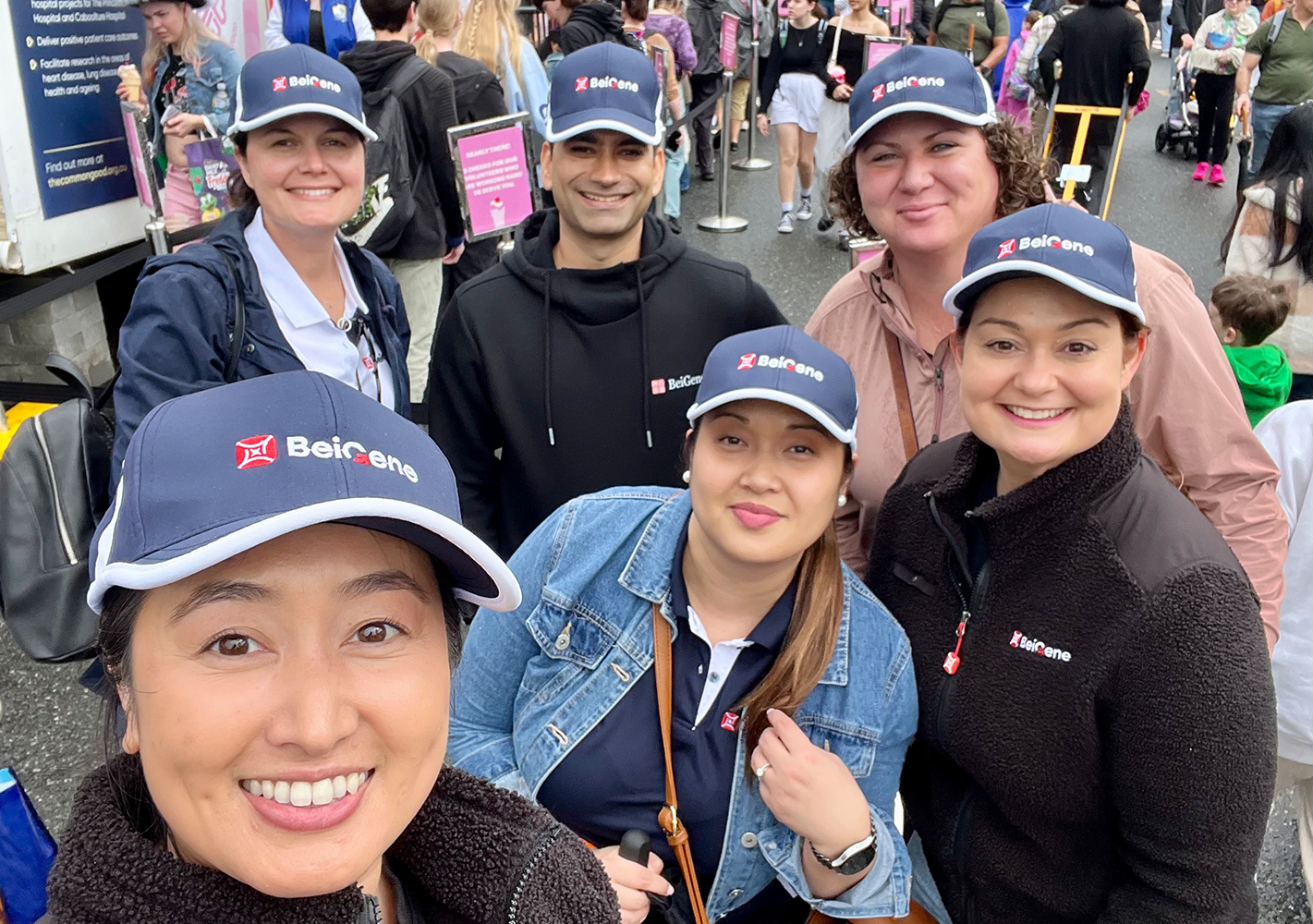Can we target cancer cells without harming healthy ones?
At BeiGene we are committed to achieving this, and one promising approach is through development of antibody-drug conjugates (ADCs). ADCs are a therapeutic class of molecules that deliver potent cancer-killing drugs directly to tumors. This puts the toxic chemotherapy agents to work directly on the cancer, minimizing the unwanted impact on healthy tissues. Thus, ADCs hold the potential to offer effective anti-cancer therapies with fewer side effects than traditional systemic chemotherapies.
How do ADCs work?
Like a precision-guided missile, ADCs use an antibody as a targeting agent. Each ADC’s antibody component is engineered to recognize a specific cancer target like a lock and key. Unlike most antibody therapeutics, which rely on the immune system for anti-tumor efficacy, an ADC carries its cell-killing payload with it. When the ADC’s antibody finds its target, the cancer cell internalizes the ADC, releasing the toxic payload and causing the targeted tumor cell to die.
Why aren’t there more approved ADCs?
Despite the theoretical appeal of ADCs, in practice their development has been challenging. After more than four decades of research, only a handful of ADCs have gained commercial approval. Key difficulties include identifying cancer-specific targets, ensuring payload potency and stability, enabling drug access within bulky tumor masses, and addressing molecular variability such as uneven expression of the cancer-specific target of the ADC or different sensitivities to killing by the ADC payload across cancers. Additionally, the complexity of ADCs – comprising a large antibody molecule, a cytotoxic payload drug, and a chemical linker that tethers the payload to the antibody under the right conditions – poses significant manufacturing challenges and constrains design options.
Enhancing ADCs with technology innovations
At BeiGene we are building on the decades of foundational learnings in the industry with our own deep discovery research expertise to create the next generation of enhanced ADCs across multiple tumor types. Technology innovation in all aspects of the ADC molecule allows us to generate promising new ADCs tailored to specific indications. For example, we employ multispecific antibody frameworks to incorporate the latest innovations in tumor targeting. We are deploying a range of proprietary payloads, from small molecule inhibitors targeting key biology pathways to innovative degraders and conditionally active prodrugs. Our novel linker chemistry is designed to allow a high amount of payload loading on ADCs and to ensure precise release of the payload to the targeted tumor cells. Furthermore, we achieve site-specific, stable attachment of the payload drug to the antibody with a tunable drug-to-antibody ratio, optimized for each ADC.
In-house ADC manufacturing fueling progress
Integrating these technological advancements and refining candidate molecules through an iterative discovery research and validation process are what makes each investigational ADC uniquely suited to its intended development path. Hand-in-hand with innovations in ADC design, we have established in-house manufacturing capabilities for our enhanced ADC technologies. This infrastructure streamlines production of experimental ADCs for research testing and evolution as well as providing ready scale-up for preclinical validation, clinical, and ultimately commercial activities.
Advancing enhanced ADCs for potential clinical benefit
With our exploration of novel payloads and incorporation of other technology enhancements, we aim to broaden the therapeutic scope and utility of ADCs. In 2024, we initiated clinical trials for our first investigational ADCs in several advanced solid tumors such as breast, lung, and gastrointestinal cancers. We are hopeful that these and subsequent molecules will fulfill the potential of ADCs by offering more efficacious and less toxic cancer treatments. Driven by innovations in discovery technology, manufacturing, and clinical trial design and execution, we are advancing our enhanced ADCs with an urgency inspired by the patients we serve.






